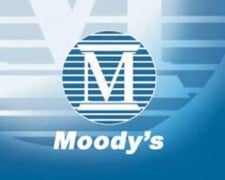 Moody’s Investors Service said that the ruling denying FOX Broadcasting’s efforts to block Dish Network’s automatic recording and ad-skipping PrimeTime Anytime and AutoHop features gives DISH an early win over broadcast networks.
Moody’s Investors Service said that the ruling denying FOX Broadcasting’s efforts to block Dish Network’s automatic recording and ad-skipping PrimeTime Anytime and AutoHop features gives DISH an early win over broadcast networks.
The court appeared to acknowledge however, the copyrights of the broadcaster’s content. In Moody’s view, a victory by DISH in the continuing suit could, in the longer term, undermine the ability of broadcast networks to grow and sustain ad revenue in the traditional fashion.
“While we don’t expect an immediate impact on either of the parties, the ruling may enable DISH to marginally differentiate itself from other pay-TV operators which do not offer similar automatic ad-skipping services, and increase its value proposition for consumers, who tend to favor commercial-free viewing. However, if DISH is victorious and the feature is adopted more broadly by other operators, we expect the battle to move from the court room to the negotiating table as broadcast retransmission agreements expire. “We expect networks will seek to get compensated for lost revenue by asking for higher fees than typical in
the next round of commercial retransmission negotiations,” said Neil
Begley, a Moody’s SVP. “In turn, DISH would want smaller increases in fees in return for turning off the service, leaving DISH in a better position than some of its competitors.”
Moody’s believes that the direction of these negotiations will to some extent depend on perceived consumer behavior — if consumers highly value the feature and are more likely to acquire or retain the service as a result, DISH will likely seek to maintain the feature and it may be more widely adopted by other operators. In such a scenario, we expect the operators will end up paying more in retransmission fees to at least partially compensate for lost advertising revenue at the broadcast networks.
On the other hand, if consumers view the feature as a subtle improvement to existing DVR capabilities and it does not materially impact their choice of operator, Moody’s believes DISH is more likely to use the feature for leverage in its upcoming retransmission negotiations, by offering to remove the feature in exchange for lower fees or smaller annual increases. Either way, they expect already contentious retransmission negotiations between broadcast networks and pay-TV providers to become even more challenging in the coming years and more stations are likely to go dark temporarily on DISH’s service.
RBR-TVBR observation: Fox was right in trying for the injunction, because the longer AutoHop runs, the possibility exists that the networks will have a harder time proving a hit to revenues in court. The big decision has yet to be made in court, but unless AutoHop (which is unfair against local broadcasters because it only cuts ads from their DVR viewing) is shut down, DISH indeed is holding all of the cards, as Moody’s explained. Like we’ve said before, no matter how the court ruling turns out in the end, the broadcast networks need to make a public pact that they will not renew agreements with DISH if AutoHop stays.





